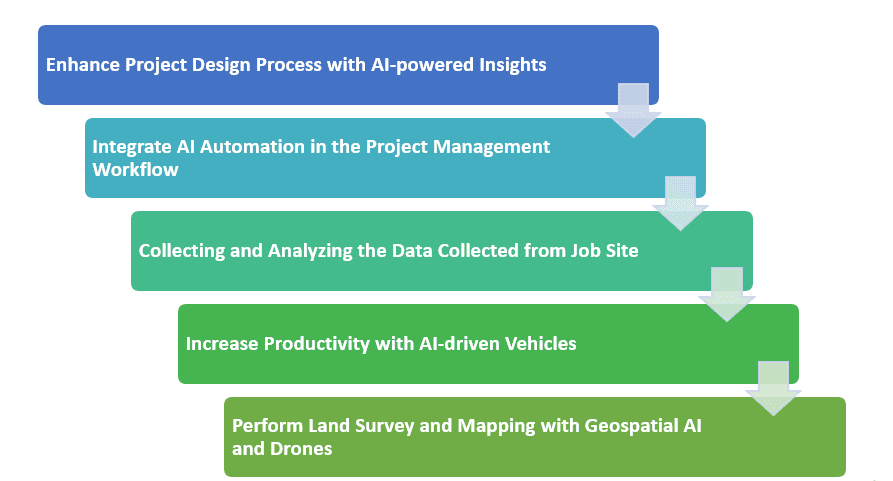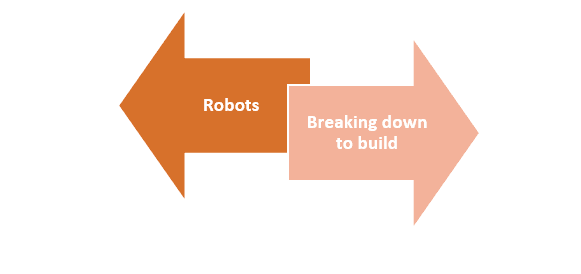Revolutionizing Construction: Harnessing the Power of AI for Efficient and Innovative Solutions
Artificial intelligence (AI) is the term used to describe computers and computer systems that can manage their own thoughts and actions. The digital transformation of artificial intelligence in the construction sector is ongoing. Achieving the potential of the construction sector to new heights requires a focus on technologies like artificial intelligence and machine learning at every stage of engineering and construction, from design to preconstruction to construction to operations and asset management.
Artificial intelligence is making a significant difference in the construction industry by completing work faster and more affordably. The construction industry’s planning and designing section is expected to benefit the most. With the use of artificial intelligence, the construction industry can confidently address present problems while avoiding mistakes from the past.
How AI can improve smart construction?
Companies that want to keep their competitive edge should improve their technology as soon as possible. AI integration can enable smart construction.

What role does AI play in the construction sector?

Planning and Designing through Generative Design: The AI-based Building Information Modeling (BIM) technique helps builders, engineers, and construction workers in creating 3D model designs for effective planning, design, construction, and infrastructure maintenance.
Measuring Site Progress: Robots with cameras controlled by artificial intelligence can be used by construction companies. To take 3D images, these robots can move around the construction site on their own.
Robust Fleet Management: The Internet of Things (IoT) is being used by construction businesses to manage their operations of vehicles and equipment. IoT offers solutions like location awareness, predictive maintenance, fuel and battery consumption, and much more with the use of the AI measurements as inputs.
Creating Safer Job Sites: Various factors make accidents at construction sites more likely. The site manager can identify potential risks by tracking the sources, such as images and videos, through the software and take appropriate action, as necessary.
Alleviate Labor Shortage: The ability to monitor the current condition and resource needs across numerous job sites is provided by AI-powered robots. Depending on the needs, labor can be moved to another working site or to a different area of the project. To identify the problematic locations, the robots scan the website.
Future of AI in Construction:
By using robotics, artificial intelligence, and the internet of things, building costs can be cut by up to 20%. Engineers can send mini robots into newly constructed structures while wearing virtual reality eyeglasses. These robots follow the task as it is done using cameras. Modern constructions’ plumbing and electrical systems are being controlled using AI. AI is being used by businesses to create workplace safety solutions. It is being used to track the real-time interactions of workers, machinery, and objects on the site and alert supervisors of potential safety issues, construction errors, and productivity issues.
By digitization their workflows and project documentation, construction companies may begin the journey toward integrating AI and technology. As a result, it is proposed that corporate leaders at construction businesses focus their investments on areas where AI may have the most impact. Early investors of this digital transformation will undoubtedly overtake their competitors in the market. Getting an edge will position them as leaders who can set the direction and benefit in both the short and long term.

Conclusion:
Construction’s various sub-segments, from planning to designing to construction, have all benefited from Artificial intelligence. AI-assisted construction will manage the entire project while providing guidance on risk management, schedule adherence, structural integrity, and many other issues. By using Artificial intelligence to its full capacity, the construction industry will earn more money while facing few hazards and injuries.
Author: Sakshi Gupta
